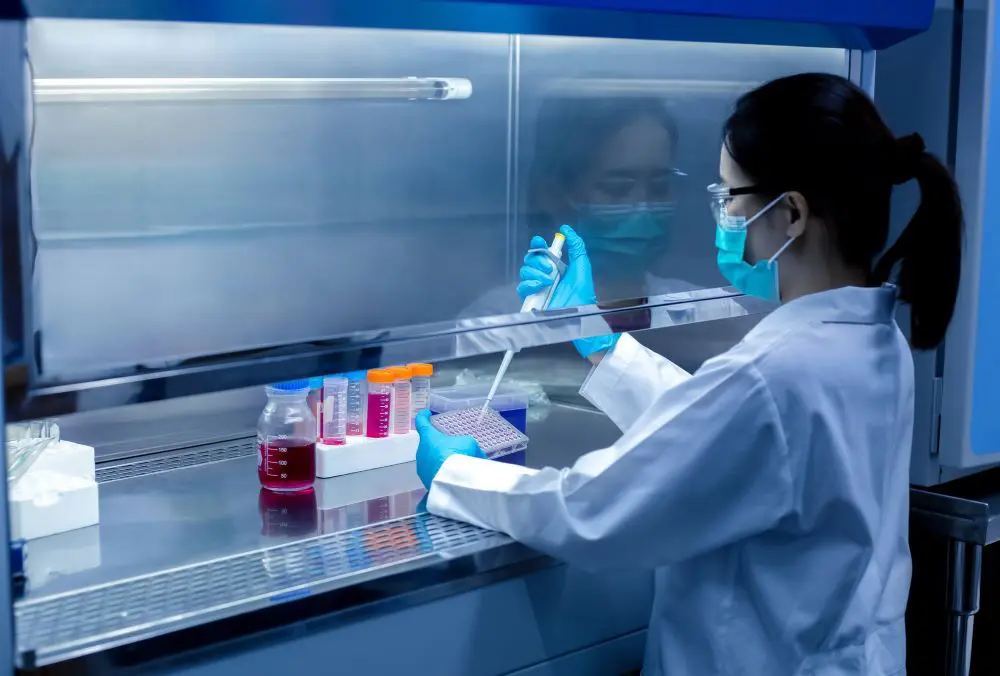

How to better utilise staff in cell culture labs
Cell culture labs are labour intensive which can contribute to a poor working environment. Can automation help?
Cell culture is an amazing achievement of biology that allows cells to be grown outside of their in vivo setting, whether that be the human, animal, microorganism or plant. The technological processes of cell culture have improved dramatically since the first cells were cultured in vitro by Wilhelm Roux in 1885. These include the engineering of sophisticated cell culture hoods that create a sterile working environment, complex nutrient mediums that enable the culturing of almost any animal cell, and novel stackable culture flasks that provide a scale out solution.
However, staffing of cell culture labs is one aspect of the field that has remained largely undeveloped since its conception. The process of maintaining living cells is a 24/7 operation (cells never sleep!) and this is achieved almost entirely through human input and manual labour. Traditionally, very few aspects of cell culture are automated, meaning highly trained scientists are required to perform repetitive, simple tasks daily.
This can lead to a poor working environment that sacrifices staff utilisation and exposes the process to inefficiency, human error, and elevated costs. In this article, we will discuss some of the challenges surrounding staffing of cell culture labs and how automation can improve staff utilisation and the working environment.
The challenges facing cell culture staff
Weekend working!
Ask any stem cell biologist what their least favourite part of the job is, and they will likely tell you it’s the requirement to work weekends! More so than any other cell type, stem cells are highly sensitive to slight changes in culture conditions that can initiate or alter the differentiation program of the cell culture. The higher the potency, the higher the sensitivity, and this results in pluripotent stem cells (embryonic or induced) requiring daily attention to change the medium or passage the cells. Although less demanding than stem cell cultures, primary adult cultures and cell lines still require a significant commitment of time and resources. The daily, time intensive nature of cell culture can lead to an unfavourable work environment, where staff are forced to work weekends to maintain highly valuable cultures, negatively impacting the work-life balance of employees.

Routine cell culture is repetitive and unstimulating
The bulk of cell culture is focused on maintaining a specific phenotype in vitro. This means the daily workflow must be standardised for routine tasks, such as:
· Seeding cells
· Preparing the specific culture medium
· Feeding and passaging cells
· Checking growth and confluency
Performing these repetitive tasks which strictly follow a given protocol is highly unstimulating and this can cause discontent amongst staff that have been trained as scientists to explore the unknown.
A large workforce can hinder the efficiency and quality of cell culture labs
It’s clear that cell cultures are time, labour, and resource intensive. Despite other fields such as engineering implementing automation to improve efficiency and the working environment, nearly all cell culture processes remain manually operated. The challenges of scaling cell culture processes are still largely tackled through increased manpower, an inefficient and expensive solution to the problem. Scaling the output of a cell culture lab requires either increasing the number of employees or the working hours of existing staff. This can further exacerbate the discontent amongst staff when combined with the factors of weekend working and repetitive tasks. Not only does an increased workforce present an inefficient solution, but it can also harm the quality of the cell culture. Inter-operator variability can negatively impact the reproducibility of cultures and experiments. Variability is worsened in large workforces as each operator has unique ways of performing certain tasks.
Cell culture automation leads to better staff utilisation and working environment
Automated cell culture processes offer a way to better utilise staff skills and experience by alleviating employees of repetitive routine tasks. As discussed in previous articles, many laboratory processes can now be fully automated, including:
· Cell culture liquid handling, allowing robotic pipetting for medium preparation and cell feeding
· Automated and sealed cell culture incubators prevent contamination
· Microscopy and cell morphology characterisation using machine learning
· Plate handlers for the movement of cell culture flasks between stations
· Fully automated stem cell culture systems including cell seeding, feeding and passaging
Improved staff utilisation
Automation can have a profound impact on both the productivity and work environment within a lab group or company. By alleviating highly trained staff from these basic tasks, employee skills can be used in more valuable areas such as process development or discovery research. These areas can have a significant impact on the lab or company, by reducing costs or increasing output through process development. Further, staff are not made redundant by automation, but rather work complimentary to each other as human input is required for the optimisation and overseeing of robotics. In this way, automation creates new jobs for employees to be trained and utilised in.
Better working environment
Utilising staff in engaging and stimulating tasks is paramount for building a healthy working environment, one in which employees are motivated and take pride in their work. Automation can provide this by reducing the workload of mundane, repetitive cell culture tasks such as cell feeding. Automation can also reduce the long hours and weekend work associated with stem cell cultures, leading to a better work-life balance among employees!
While stand-alone pieces of automated equipment can help reduce the workload of individual cell culture steps, operators are still required to load and unload the device, and for the remainder of the process. The true benefit of automation occurs through fully automated processes from start to finish. The use of robotic plate handlers and other intelligent designs can be implemented to connect individual automation pieces, such as transporting culture flasks from the liquid handler to the sealed incubator. Fully automated processes allow for uninterrupted staff utilisation in other areas, benefiting staff satisfaction and the working environment.

Discover the frequent mistakes made during manual ELISA assays and how automation…
Read more Common errors in manual ELISA assays and how automation can help
Automata Senior Application Scientist Alice Tome-Fernandez discusses how to free your scientists…
Read more Eliminating scientist dead time with automation
By utilising the power of open, integrated automation solutions lab technicians can…
Read more Unlocking the power of people in your lab